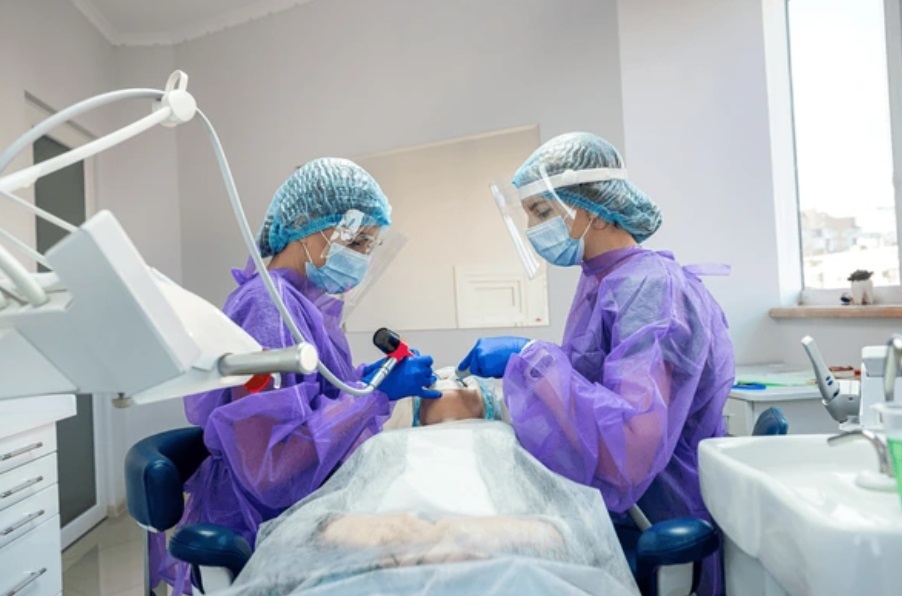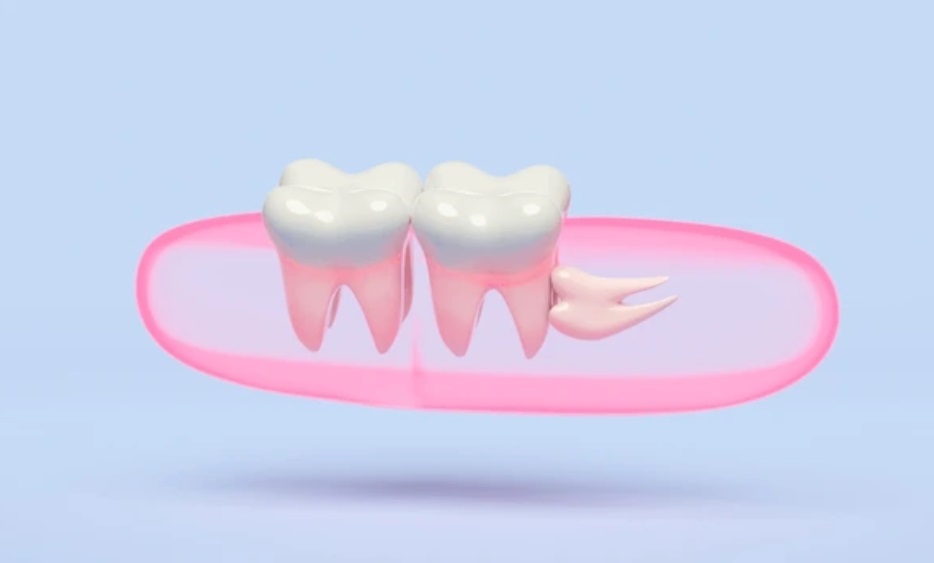What Are Wisdom Teeth?
Wisdom teeth, also known as third molars, are the last set of teeth to emerge, usually between the ages of 17 and 25. For some people, these teeth come in without any issues, but for many, wisdom teeth can become problematic due to insufficient space in the jaw. This can lead to impacted wisdom teeth, where the tooth is trapped beneath the gum or grows at an angle.

Why Are Wisdom Teeth Removed?
Wisdom teeth removal is often recommended to prevent future dental problems. Impacted wisdom teeth can cause various issues such as:
- Pain and discomfort: Crowded or partially erupted wisdom teeth can lead to pain in the back of the mouth.
- Infection: A partially erupted tooth creates an opening for bacteria, leading to infections, swelling, or gum disease.
- Tooth decay: Wisdom teeth are more prone to cavities due to their position, making them harder to clean.
- Damage to nearby teeth: If wisdom teeth push against adjacent molars, they can damage healthy teeth.
Removing wisdom teeth early can prevent these complications, helping you maintain better oral health in the long run.
Preparing for Wisdom Teeth Extraction
Before the wisdom tooth extraction, it’s essential to be well-prepared. Your dentist or oral surgeon will take X-rays to determine the position of your teeth and assess whether surgery is necessary. Here’s how you can prepare for the procedure:
- Discuss anesthesia options: Most wisdom teeth removal procedures use local anesthesia, sedation, or general anesthesia. Your dentist will recommend the best option based on the complexity of the extraction.
- Plan for post-surgery care: Arrange for someone to drive you home after the surgery, as you may feel drowsy if sedation or general anesthesia is used.
- Follow pre-surgery guidelines: Your dentist may advise you to avoid food or drink for several hours before the procedure if general anesthesia is planned.

The Wisdom Teeth Removal Procedure
During the surgery, your dentist or oral surgeon will:
- Administer anesthesia to ensure you’re comfortable.
- Make an incision in the gum to expose the tooth (if it hasn’t erupted yet).
- Remove bone that may be covering the tooth (in the case of impacted wisdom teeth).
- Extract the tooth in sections to minimize damage to surrounding tissue.
- Clean the area and stitch the incision to promote healing.
The entire procedure typically lasts between 30 minutes to an hour, depending on the complexity of the extraction.
After the Procedure: Recovery and Care
Post-surgery care is crucial for a smooth recovery. Here’s what you can expect and how to manage your recovery:
- Swelling and discomfort: Mild swelling and discomfort are normal for the first 24-48 hours. Applying an ice pack and taking prescribed pain medications can help manage this.
- Diet: Stick to soft foods like yogurt, soup, and mashed potatoes for the first few days. Avoid hard, crunchy, or spicy foods that could irritate the extraction site.
- Oral hygiene: Gently rinse your mouth with warm salt water after 24 hours to keep the area clean, but avoid brushing near the extraction site for a couple of days.
Most patients recover fully within a week, but it’s important to follow all aftercare instructions to avoid complications like dry socket, where the blood clot dislodges from the extraction site, causing pain and delaying healing.
Common Complications and Risks
Though wisdom teeth removal is a common and generally safe procedure, like any surgery, it carries some risks, including:
- Infection: If bacteria enter the extraction site, an infection may develop.
- Nerve damage: In rare cases, the procedure can cause temporary or permanent damage to the nerves, leading to numbness in the lips, tongue, or chin.
- Dry socket: As mentioned, dry socket is a painful condition that can occur if the blood clot protecting the bone and nerves in the extraction site dislodges.
Your dentist will provide detailed instructions on how to minimize the risk of complications, but if you experience intense pain, fever, or prolonged bleeding, contact Roots & Crown MicroDENTIStry immediately.

When to Call Your Dentist
If you experience any of the following after your surgery, it’s important to call your dentist or oral surgeon:
- Severe pain that doesn’t improve with medication
- Persistent swelling or redness
- Pus or discharge from the extraction site
- Fever or chills
Prompt attention can prevent more serious complications and ensure a smooth recovery.
Do You Need to Remove Your Wisdom Teeth?
Not everyone requires wisdom teeth removal, but it’s often recommended for those with impacted or problematic teeth. Regular dental check-ups and X-rays can help your dentist monitor the growth of your wisdom teeth and determine whether extraction is necessary.
Final Thoughts
Wisdom teeth removal can protect your oral health from future complications like infection, pain, and tooth decay. At Roots & Crown MicroDENTIStry, we’re committed to providing you with the highest quality care, ensuring a comfortable experience from consultation to recovery. If you think you might need your wisdom teeth removed, contact us today to schedule a consultation.
Your smile deserves the best care, and we’re here to help!

